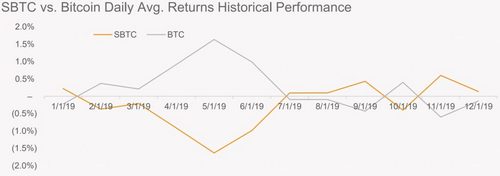The industry consortium can more effectively identify best practices and develop baseline security procedures, the whitepaper reads. To improve its effectiveness, DTCC says standardization «requires collaboration from professional organizations, the financial services sector, and its regulators.»
The Depository Trust Clearing Corporation (DTCC) wants the financial sector to form a consortium alongside regulators to reduce risks associated with blockchain.
In a white paper published Wednesday, the New York-based post-trade financial services firm said participants in the financial sector should work to establish a set of «agreed-upon standards» that could address some of the security concerns surrounding the tech.
«In light of the speed of digital transformation within the financial services sector, DTCC calls for a coordinated strategy for the development of a principles-based framework to identify and address DLT specific security risks,» reads the whitepaper.
DTCC has been planning on integrating blockchain into its own operations for the past couple of years. But Wednesday’s white paper argues some of the associated risks have not been adequately addressed and could leave traditional players totally unprepared.
Addressing these risks will allow firms to more easily identify potential security risks, the white paper reads. Greater security standardization may also improve overall understanding and user confidence in the technology, as well as foster greater collaboration.
By including regulators in the creation of the framework, the firm argues, will ensure alignment with future legislation that can also be a better safeguard for industry participants as well as customers.

DTCC is the world’s largest trade repository, holding data for more than four-fifths of the global derivatives market. Its central role has helped standardize basic practices in traditional markets such as introducing a cost basis information framework – determining the original value of an asset for tax purposes – in equities clearing.
Although there have been some previous attempts to introduce standardized blockchain security practices, DTCC argues it can «leverage our unique role within the financial services sector» to begin developing a comprehensive framework that can be used by all industry participants.
DTCC has already begun the process of standardizing a new blockchain-based financial system. It effectively called on participants to adopt its guidelines, published in March 2019, for the post-trade processing of tokenized securities.
Dole to Integrate IBM’s Food Trust Blockchain Into All Divisions by 2025
Dole Food Company, the world’s largest producer of fruit and vegetables, has revealed a five-year plan to expand its adoption of distributed ledger technology, or DLT, for supply chain tracking.
Dole’s blockchain expansion was announced in its 2020 Corporate Responsibility and Sustainability Report.
Dole first began to explore DLT after joining IBM’s Food Trust as a founding member in 2017.
Dole to launch DLT tracing in all divisions by 2025
The report announces that Dole will comprehensively overhaul its food tracing systems, including the goal of integrating blockchain-based product-tagging and advanced traceability solutions into all of its divisions by 2025.
Dole already utilizes blockchain throughout its supply chain for salads and fresh vegetables, and has shared its data with select retail customers since 2019.
“Blockchain cuts the average time needed for food safety investigations from weeks to mere seconds”, states Dole.
“Produce that’s been logged via blockchain can be instantly tracked back through the supply chain, giving retailers and consumers confidence in the event of a recall”, the report adds.
Food producers trial consumer-facing QR-code scanning
The report states that security measures are built into the system to prevent retailers participating in its blockchain program from exposing valuable proprietary information to other entities in the network.
Dole also announced plans to launch a consumer-facing feature allowing shoppers to scan each package of salad or vegetables to access detailed information recorded across the product’s supply chain:
“Eventually, consumers will be able to scan each bag of salad or package of vegetables in-store to get information about its journey from farm to store shelf.”
On April 6, fellow-IBM food trust member, Nestlé, announced it would expand its use of DLT to print QR codes on the packaging for its premium coffee brand, Zoégas. Consumers can now trace select blends back to farms and roasters in Brazil, Rwanda, and Colombia.
Ethical egg producer, Farmer’s Hen House, launched a similar program in partnership with blockchain food tracing firm, Bytable. They began printing QR-codes on egg cartons in mid-April that allow consumers to trace the origin of their eggs.


